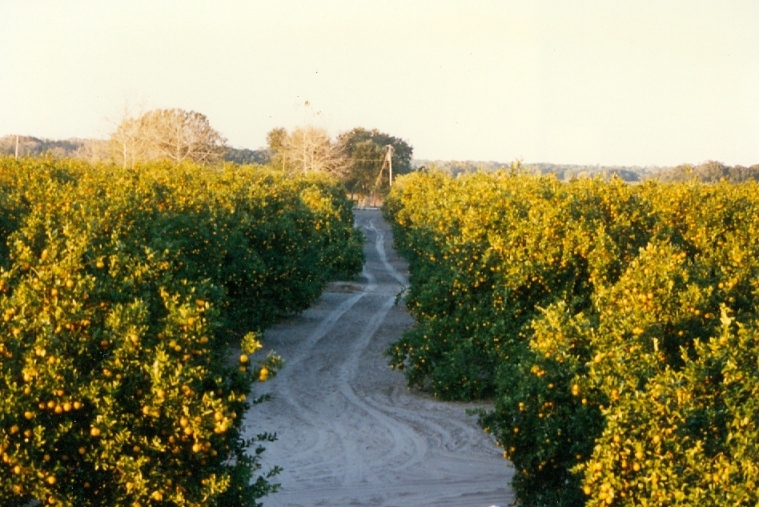
My family runs a citrus farm in south central Florida. My grandfather, who died in late 2004, began it well before my mother was born.
It isn’t a very big grove; only about 20 acres. We grow pineapple variety oranges, which are considered by the industry a “juice orange.” You won’t find our fruit in commercials for OJ, because they aren’t “table fruit,” meaning they aren’t the kind of oranges one puts in a bowl to make a centerpiece.
Now in Florida, we have another blow dealt to our crop: Citrus Greening. This disease causes the fruit to wither into hard little knots, and it causes trees to diminish in foliage and abundance. As bad as citrus canker was in the 1980s and before, greening now threatens family farms like ours even more. This disease, caused by a foreign phyllid, has brought Florida Citrus to its knees. As legislators and agricultural experts figure out what to do next, Florida orange groves are dying away, acre by acre. Ours is no different, unfortunately. Government officials have worked hard to get funding to eradicate greening, but it may not happen fast enough. No more 100 percent Florida orange juice is a very close and real possibility. Greening could mean the end of not only a product, but also a long line of family traditions, as well. Current farmers looking to pass on the family business may soon be without a family business at all.
I explain all this to raise another point, however: In the midst of the great greening crisis our state is undergoing, many farmers, including my family, are examining organic farming practices with greater intensity. No-till farming and other ideas are being investigated for their potential benefit, and 21st Century agriculturists are learning that the chemicals we relied upon for decades are doing more harm than good, especially in dealing with greening.
Poetry, much like citrus farming, equally demands a more organic approach as we enter a new era in literature. No longer can the writer be satisfied with language that sounds self-important and inflated; the words must flow, and there must be balance among the elements, just as sustainable agriculture requires the right balance of water, sunlight, and food. Too much alliteration or metaphor, and the verses will perish. Too little editing or revising, and the end product will be as hard and withered as a greening-affected orange.
It seems a little selfish to focus on writing artfully amid such a dangerous situation for family farms. But maybe, just maybe, some of the same practices that poets and artists employ on paper can be used by our scientific community to save our citrus — sometimes, the new, radical, and unconventional solution is exactly what a piece of writing needs. And perhaps that’s what our oranges need as well.
If you’d like to get involved in the fight against greening, please write your congressional representatives, and search online for ways that you may be able to help. Keep American Agriculture strong! Thank you for listening, and thank you for reading.